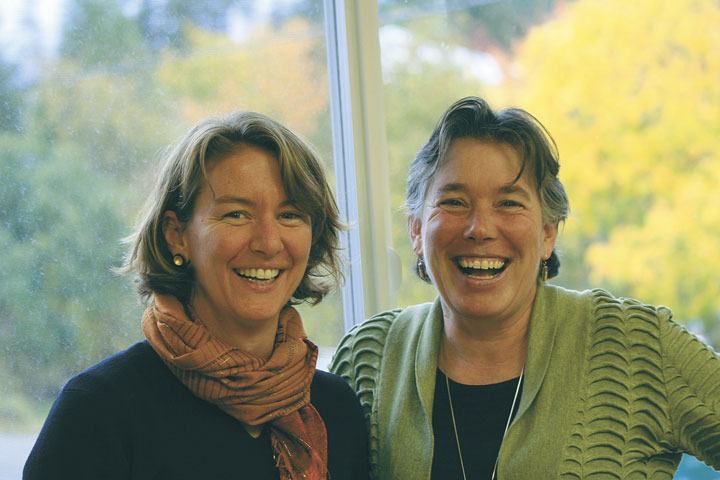This coming week is National Community Foundation week, and Nov. 17 is National Philanthropy Day. The Sounder is recognizing these events with a feature of Orcas Island’s community foundation.
Orcas Island supports at least 110 nonprofits with a population of roughly 5,700.
The national average is around four nonprofits per 1,000 people, Orcas Island Community Foundation director Hilary Canty tells the Sounder.
“Orcas Islanders are remarkably philanthropic, in terms of both time and money,” Canty said. “We have no central government or town council, so we look to each other for support and a safety net. That requires a tremendous amount of volunteer effort.”
OICF offers support and training to all 110 of these nonprofits, and manages endowment funds for 44 of them.
In 2010 the foundation held gross assets of $5,452,448, or $957 per capita, compared to $366 held by the Seattle Community Foundation. That year $312,246 was disbursed to charities.
The foundation was started 16 years ago to provide a central structure for charitable giving to other nonprofits, and consistently offers workshops and training to help strengthen local charities. More recently the foundation has begun to assess the overall health of the community, seeking to understand which local charities are best meeting needs and which could use more support. While a grants committee selects each year’s OICF grant recipients, OICF’s 15 board members are responsible to steer the foundation’s course. As executive director, Canty supports the board and ensures it has enough information to make decisions.
Charitable giving to nonprofits
Donors can give to local charities of their choice through OICF.
“Donors know if they come to us, we’ll be able to tell them that the nonprofit is in good standing: it has an active board; its bylaws are up to date; it has filed its tax returns,” said OICF board president Diane Berreth. “We can assure potential donors that their funds are going to a sound nonprofit.”
When small nonprofits lodge their designated funds with the foundation – pro bono – it also pools their assets, increasing each organization’s return on investment under a single professionally managed and administered fund.
The foundation can also direct funds to meet a need anonymously, as with last year’s $50,000 mystery donor whose matching gift challenge helped fund the new food bank building.
OICF’s “Endow Orcas” initiative encourages community members to consider leaving legacy gifts. For example, the Betty Lundeen Book Fund was established in 1998 and has received gifts of $77,000. The fund has grown to $85,000 and paid out another $35,000 to buy books for the Orcas library. Endowment funds endure into the future because only the interest generated by each account is used to support the designated cause; the main body of funds remains untouched.
The foundation also holds 20 donor-advised funds, which Canty describes as “basically philanthropic savings accounts.” OICF invests and monitors the money, but the donor can request a disbursement to a nonprofit at any time. The funds have given out over $200,000 this year.
Between donor advised funds, the foundation’s annual grants cycle, and the food bank fundraising drive, the foundation disbursed $500,000 by Sept. 2011.
Non-profit training
Recent capacity-building workshops offered by OICF include “Board Boot Camp” and classes on finance and endowment. The foundation has also helped eight local nonprofits become ready to accept and sustain an endowment fund.
OICF crafted a Community Needs Assessment in 2010 by speaking with community representatives in eight general sectors. The result was “broad list of community needs,” said Canty. She said the two primary areas of need that were foremost are access to sufficient medical/dental care, and hunger.
Berreth said OICF’s vision is “to sustain and support a high quality of life for all islanders,” adding, “Conditions are so difficult – it’s not enough to sustain what is. We need to have a vision of a better future for our island. We want a diverse community of people who can support themselves and thrive on this island.”




